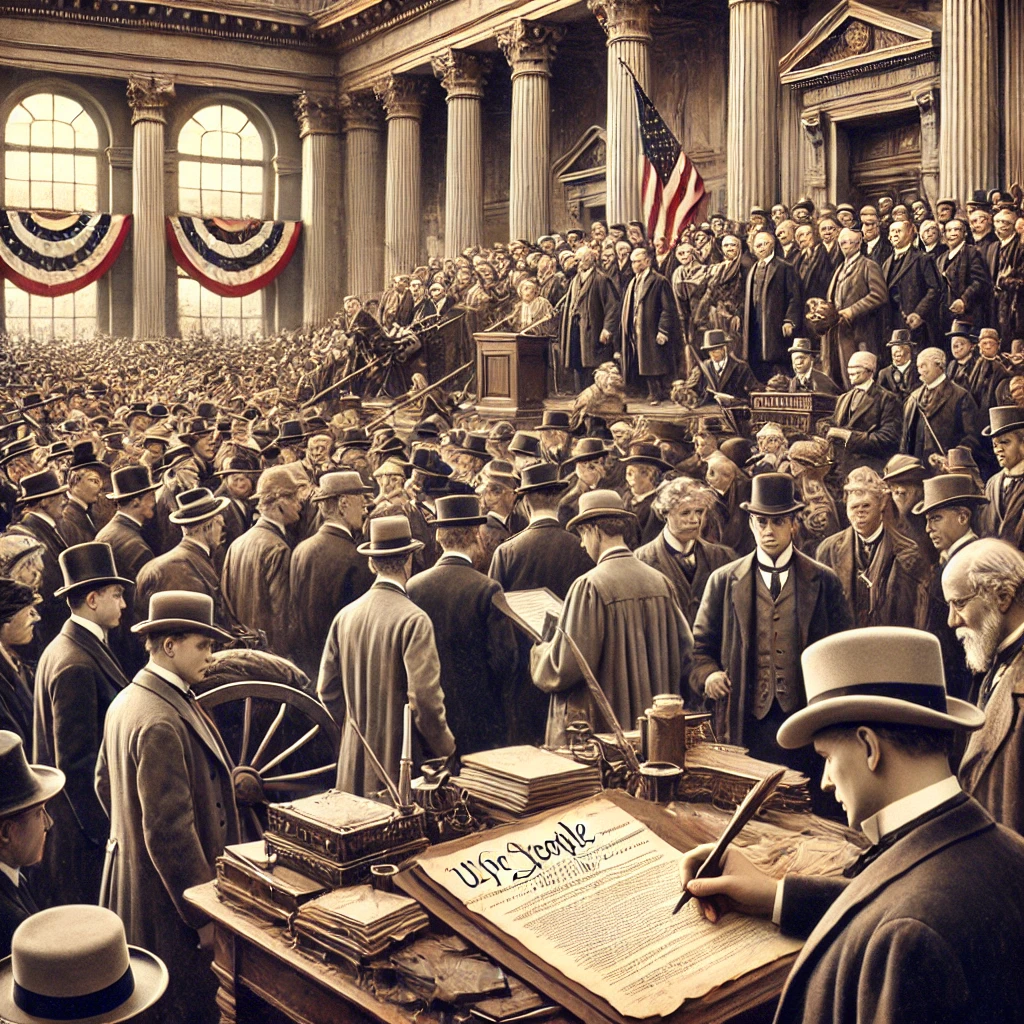AP United States Government and Politics
The political system and culture of the United States with AP United States Government and Politics. This course offers a deep dive into the workings of American democracy, the Constitution, and the political institutions that shape public policy and civil liberties. AP United States Government and Politics
Course Overview
AP United States Government and Politics is an introductory college-level course that examines the structure, processes, and complexities of the U.S. political system. Through critical analysis and discussion, you’ll gain a nuanced understanding of American political culture and the impact of Supreme Court decisions on the fabric of society. AP United States Government and Politics
Skills Development
In AP U.S. Government and Politics, you’ll develop a range of analytical skills, including: AP United States Government and Politics
- Real-Life Application: Connecting political concepts to contemporary scenarios.
- Supreme Court Analysis: Explaining the significance of landmark court decisions.
- Data Interpretation: Identifying trends and drawing conclusions from political data.
- Textual Analysis: Reading and analyzing foundational documents and contemporary texts.
- Argumentation: Crafting and defending theses in written essays.
Equivalency and Prerequisites
- College Course Equivalent: Comparable to a one-semester introductory college course in U.S. government. AP United States Government and Politics
- Recommended Prerequisites: None, making this course accessible to all students interested in American politics.
Exam Information
- Exam Date: Monday, May 6, 2024, at 8 AM Local Time. AP United States Government and Politics
- This is the scheduled date for the AP U.S. Government and Politics Exam.
Course Units
The AP U.S. Government and Politics curriculum is organized into five units: AP United States Government and Politics
Unit 1: Foundations of American Democracy
- Focus: Ideals of democracy, federalism, and the balance of powers.
- Exam Weight: 15%–22%.
Unit 2: Interactions Among Branches of Government
- Focus: Roles and functions of Congress, the presidency, the judiciary, and the bureaucracy. AP United States Government and Politics
- Exam Weight: 25%–36%.
Unit 3: Civil Liberties and Civil Rights
- Focus: Bill of Rights, amendments, and social movements. AP United States Government and Politics
- Exam Weight: 13%–18%.
Unit 4: American Political Ideologies and Beliefs
- Focus: Political beliefs, public opinion, and ideological divisions.
- Exam Weight: 10%–15%.
Unit 5: Political Participation
- Focus: Voting rights, political parties, interest groups, and media influence.
- Exam Weight: 20%–27%.
Preparing for Civic Engagement
To excel in AP U.S. Government and Politics, immerse yourself in the study of American political institutions, engage in discussions, and apply your knowledge to real-world political issues. Embrace the challenge and enjoy the journey through the landscape of U.S. politics!

Key Updates:
- Roe v. Wade: Despite recent changes, Roe v. Wade remains a crucial part of the curriculum under Topic 3.9, which explores due process and the right to privacy along with other significant cases like Griswold v. Connecticut and Dobbs v. Jackson Women’s Health Organization.
- Foundations of American Democracy: Learn about the creation of the U.S. Constitution, the balance of power, and ongoing debates that shape U.S. governance.
- Interactions Among Branches: Understand the complex interactions between Congress, the President, and the federal judiciary.
- Civil Liberties and Civil Rights: Examine the balance between freedom and order in the context of the Bill of Rights and subsequent amendments.
- American Political Ideologies and Beliefs: Explore how cultural, social, and political factors influence public opinion and policy-making.
- Political Participation: Discover the various ways U.S. citizens can influence government actions and policies.
Why Enroll in AP U.S. Government and Politics?
Enrolling in AP U.S. Government and Politics can be incredibly beneficial for several reasons:
Deep Understanding of Political Processes:
- Gain a comprehensive understanding of the intricacies of the U.S. political system, including the Constitution, political beliefs, and policy-making processes.
Critical Thinking and Analysis:
- Develop the ability to critically analyze political information, understand the implications of Supreme Court decisions, and interpret data trends within the context of U.S. politics.
College Preparation:
- The course prepares you for the rigor of college-level studies and may provide college credit, saving time and tuition costs.
Civic Engagement:
- Learn the importance of civic participation and how individuals can influence government policies and decisions.
Career Relevance:
- The knowledge gained can be applicable to careers in law, public policy, journalism, education, and more.
Skill Development:
- Enhance skills such as data analysis, reading comprehension, and essay writing, which are valuable across various academic disciplines.
Informed Citizenship:
- Become a more informed and engaged citizen, equipped to understand and participate in political discussions and voting.
No Prerequisites:
- The course is accessible without prior coursework in government or politics, making it a great starting point for high school students.
Interdisciplinary Nature:
- The course content intersects with history, economics, sociology, and ethics, providing a well-rounded educational experience.
AP Exam and College Admissions:
- Performing well on the AP exam can enhance your college application profile, demonstrating your commitment to academic excellence.
By enrolling in AP U.S. Government and Politics, you’re not just learning about government structures; you’re gaining a toolkit for understanding and engaging with the political world.
What are some study tips for AP U.S. Government and Politics?
Studying for AP U.S. Government and Politics can be challenging, but with effective strategies, you can succeed. Here are some study tips to help you prepare:
Understand the Exam Format:
- The AP U.S. Government and Politics exam consists of both multiple-choice questions (MCQs) and free-response questions (FRQs).
- Approach questions methodically and plan your answers before writing. Carefully analyze the question and identify the elements to address in your response.
Know the Disciplinary Practices:
- Understand the five disciplinary practices:
- Concept Application
- SCOTUS Comparison
- Data Analysis
- Source Analysis
- Argumentation
- Practice each of these skills to excel in different question types.
- Understand the five disciplinary practices:
Master the Big Ideas:
- Familiarize yourself with the five big ideas:
- Constitutionalism
- Liberty and Order
- Civic Participation in Representative Democracy
- Competition Policy-Making Decisions
- Methods of Political Analysis
- Use these ideas to connect concepts throughout the course.
- Familiarize yourself with the five big ideas:
Review Assigned Readings:
- Keep up with the assigned reading materials. Understand key political concepts, institutions, and policies.
Practice Writing FRQs:
- Develop strong arguments and present them clearly in essays.
- State your thesis, introduce supporting elements, and demonstrate logical connections.
Stay Updated on Current Events:
- Relate political theories to real-world situations. Follow political news and understand practical applications.
Use Online Test Prep Services:
- Explore online resources, such as UWorld’s AP Gov exam prep, for additional practice and study materials.
Remember, consistent practice, analytical thinking, and understanding the subtleties of questions will help you excel in AP U.S. Government and Politics. Good luck!
What are the key topics covered in AP U.S. Government and Politics?
AP U.S. Government and Politics course, students explore various aspects of the U.S. political system and culture. Here are the key topics covered:
Foundations of American Democracy:
- Explore constitutionalism, federalism, separation of powers, and the balance between majority rule and minority rights.
- Understand the roles of the federal and state governments.
Interactions Among Branches of Government:
- Study the structures, powers, and functions of Congress, the presidency, the judiciary, and the federal bureaucracy.
- Learn about checks and balances and the complexities of policy-making.
Civil Liberties and Civil Rights:
- Analyze the Bill of Rights and amendments.
- Understand Supreme Court interpretations related to freedom of speech, religion, and other civil liberties.
- Explore social movements and their impact on civil rights.
American Political Ideologies and Beliefs:
- Examine citizens’ beliefs about government, political parties, and interest groups.
- Understand how ideologies influence policy on economic and social issues.
Political Participation:
- Learn about voting rights, third parties, interest groups, campaign finance, and media influence.
- Understand the role of citizens in shaping government decisions.
Remember, AP U.S. Government and Politics provides a comprehensive understanding of the U.S. political system, preparing students for college-level studies and active civic engagement.











